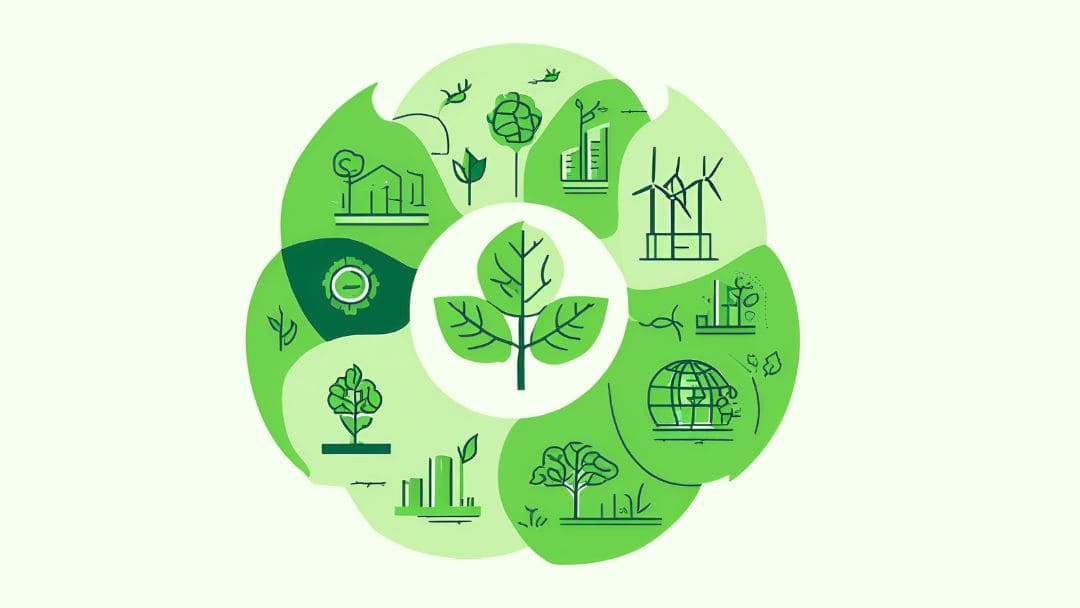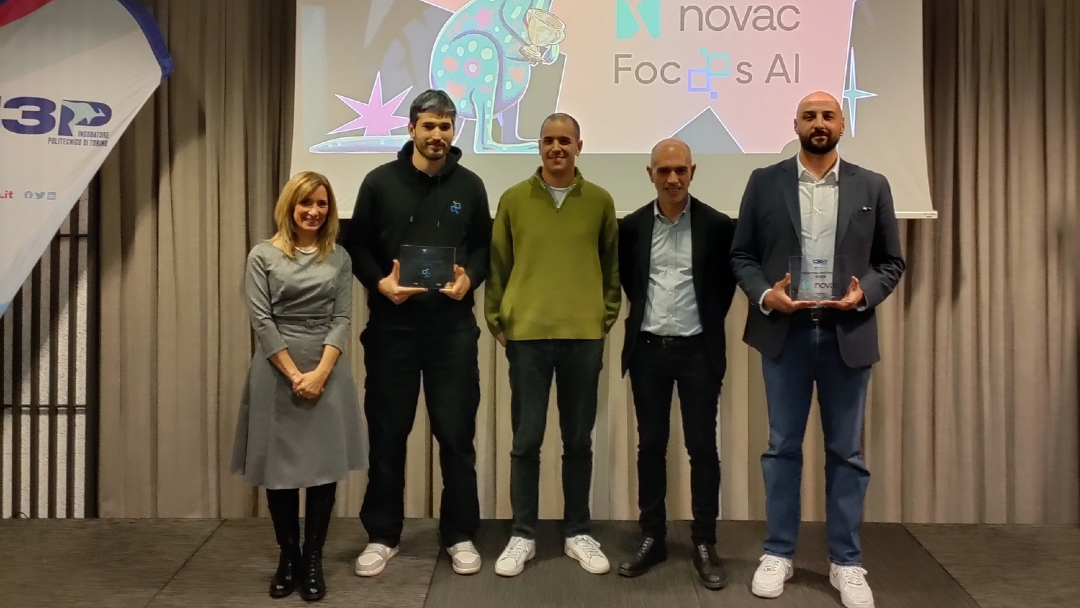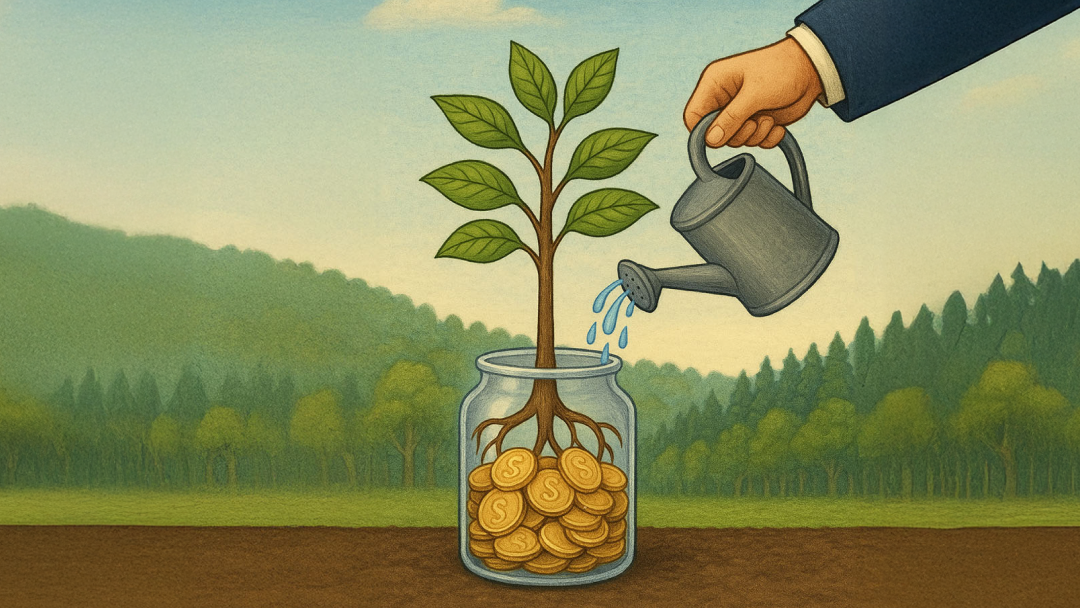Green startups are companies that focus on green practices and technologies and renewable energy aimed at combating climate change and promoting sustainability.
These startups often address critical environmental issues such as reducing carbon emissions, managing waste, conserving natural resources and developing clean energy solutions.
Green startups in Turin not only focus on improving existing technologies, but also propose innovative solutions that embrace the circular economy, clean energy, and environmental sustainability.
The Ecosystem of Green Startups
With a robust infrastructure and a dense network of universities, incubators and research centers, Turin has positioned itself as a hub for green technologies. Politecnico di Torino and the University of Turin play a crucial role in providing the technical and scientific know-how needed to power these startups.
Incubators such as I3P, the incubator of the Polytechnic University of Turin, and 2i3T, the University’s incubator, offer logistical and training support, helping young companies turn bright ideas into commercial realities.
Turin can also count on important research sites such as the Fiat Research Center and initiatives related to the Metropolitan City of Turin, which promote innovation projects in the environmental and technological fields.
Main areas of green innovation in Turin
Green startups in Turin operate in a wide range of sectors, from sustainable transportation to renewable energy, from waste management to sustainable food production.
1. Sustainable mobility.
Sustainable mobility in Turin is a key part of the city’s efforts to reduce environmental impact and improve residents’ quality of life.
Over the past decade, Turin has been fertile ground for the development of innovative solutions in the area of sustainable mobility. It has also pursued many initiatives that promote eco-friendly transportation options, including enhanced public transportation, bike-sharing programs, and electric mobility solutions.
Some of the initiatives for which Turin has taken the field include:
- Electrification of public transport
Turin is working to electrify its public transport network. Many buses are already electric or hybrid, and there are plans to expand this fleet, further reducing the carbon emissions of urban transportation. - Bike sharing
The city has implemented bike sharing services that allow residents and visitors to rent bicycles for short trips around the city. A service that helps reduce car dependence by promoting cycling as a sustainable alternative. - Car Sharing
Several car sharing services are available in Turin that allow users to rent cars on demand for short trips. Many of these cars are environmentally friendly models, including electric vehicles. - Electric scooters and scooters
Electric scooters and scooters are also a popular and sustainable form of mobility. - Rail and subway expansion
The Turin subway, currently being expanded with new lines, is helping to reduce the need for cars in densely populated areas. The expansion aims to connect more areas of the city with sustainable, low-emission public transportation options. - Charging infrastructure
The city is investing heavily in electric vehicle charging stations. These include fast charging hubs that encourage the adoption of electric vehicles by making them more convenient for everyday use. - Low-emission zones
To reduce air pollution, Turin has introduced low-emission zones in which older, more polluting vehicles are restricted. This helps to encourage the use of cleaner transportation alternatives.
Turin’s commitment to sustainable mobility is in line with the European Union’s goals for green cities, and its initiatives make it a leading city in Italy for eco-friendly transportation solutions.
Through public-private partnerships and investment in infrastructure, Turin is positioning itself as a model of sustainable urban mobility.
2. Renewable energy.
Green energy is one of the main areas of innovation. Enerbrain, one of the city’s most innovative startups, has developed technology to monitor and optimize the energy efficiency of buildings, reducing energy consumption and lowering CO2 emissions.
Using advanced technologies, Enerbrain provides solutions that optimize heating, ventilation and air conditioning (HVAC) systems, enabling buildings to reduce energy consumption and costs while improving indoor comfort. Their technology includes sensors and machine learning algorithms that monitor and adjust building systems in real time, ensuring efficient energy use.
Enerbrain focuses on sustainability, helping companies and organizations achieve their energy and environmental savings goals. Their solutions are applicable in a variety of sectors, including retail, manufacturing, and public infrastructure.
In Turin, Enerbrain has helped upgrade, energy-wise, hundreds of public buildings. Abroad it has grown so much that it now operates in more than 20 countries, including Europe, America and Asia.
3. Technologies for waste reduction and management.
Waste management is an increasingly central issue in the startup landscape. Many companies seek to reduce waste and reuse resources to create new sustainable business models.
Leap Factory is an Italian company that designs and builds modular and sustainable architectural structures, particularly for remote and high-altitude locations. Its innovative approach focuses on creating eco-friendly prefabricated buildings that are energy efficient and minimize environmental impact. Leap Factory’s designs are known for their lightweight, durable materials and can be easily assembled in challenging environments such as mountaintops or isolated landscapes. The company combines cutting-edge technologies with sustainable practices to offer flexible and efficient solutions for various sectors, including hospitality, research and tourism, while prioritizing respect for the natural environment.
ReLearn, on the other hand, provides an intelligent waste monitoring system that uses artificial intelligence to help companies reduce waste generation. The goal of ReLearn is to optimize recycling rates and reduce waste in a smart and sustainable way, making waste management more efficient. The system is equipped with sensors and artificial intelligence to identify waste patterns, track performance and provide useful information. This gives organizations a more transparent view of their waste habits and helps them make data-driven decisions to improve sustainability efforts.
By promoting innovation in recycling, waste management and sustainable manufacturing, Turin is positioning itself as a leader in the transition to a more circular and resource-efficient future.
4. Foodtech and sustainable design
Turin has also seen the emergence of innovative startups in the agribusiness sector, with a focus on sustainability and reducing environmental impact in food production and consumption.
The year 2024 began with the unveiling of the “Sustainable Food Study and Research Center.” A hub dedicated to advancing knowledge and promoting innovation in sustainable food practices. Based in Pollenzo, in the province of Cuneo, the center pursues very interesting initiatives related to current issues.
- Research and Innovation
Aims to develop new methods and technologies to make food production more sustainable, reducing environmental impact and maintaining nutritional value. - Education and outreach
The center works to raise awareness of the importance of sustainable food systems by teaching the public and industry professionals about ecological practices. - Collaboration
Through collaboration with universities, private companies and government institutions, the center fosters interdisciplinary collaboration to promote progress in the field of sustainable food. - Policy Influence
The center contributes to policy making that promotes sustainable agricultural practices, with the goal of influencing local and global food systems for long-term sustainability.
The center plays a crucial role in ensuring that future generations have access to environmentally friendly and nutritionally adequate food systems.
In terms of food-related design, Turin also plans to leave an imprint. Thus was born the Spreeng glass: reusable, collapsible and sustainable. Spreeng is a startup that wants to replace unsustainable objects and experiences with modern, sustainable alternatives that have a tangible impact on the planet. The purchase of the glasses is linked to campaigns for reforestation, cleaning the sea and supporting Ethiopian families in need.
Investments in sustainable sectors
Turin is in a phase of great development in terms of investment in the green technology sector. The city has attracted not only public funding but also private capital, with the creation of venture capital and investment funds dedicated to sustainable innovation. Programs such as the National Innovation Fund and Horizon Europe projects are helping to provide the financial resources needed to accelerate the growth of Turin’s green startups.
In addition, the Investors’ Club, a network of business angels that is very active in the city, is often involved in supporting young companies aiming for sustainable innovation, offering not only capital but also expertise and networks.
Turin and green startups: a sustainable future
The presence of a well-structured ecosystem of universities, incubators, research centers and investors has made Turin an ideal hub for sustainable innovation. The support of local and national institutions, along with the presence of private capital, has allowed startups to flourish, helping to transform the city into a model of excellence in Europe’s green innovation scene.
Turin’s green startups are contributing not only to the region’s economic development, but also to the creation of a more sustainable future for all. In a city where the automotive industry has laid down the law for decades, the move toward a new era of sustainable innovation represents an extraordinary transition to a greener, more resilient economy.
The green startup ecosystem in Turin is thriving, driven by a strong commitment to sustainability and innovation. From renewable energy to waste management and circular economy solutions, these startups are shaping a greener future for the city and beyond.
With the support of universities, incubators and a forward-thinking community, Turin is positioning itself as a hub for green entrepreneurship. For anyone passionate about sustainability and innovation, this city offers endless opportunities for growth and lasting impact on the environment.
Do you have a startup that deals with green issues? Join into the innovation ecosystem by reporting it to us and contributing to the mapping of Turin startups.





